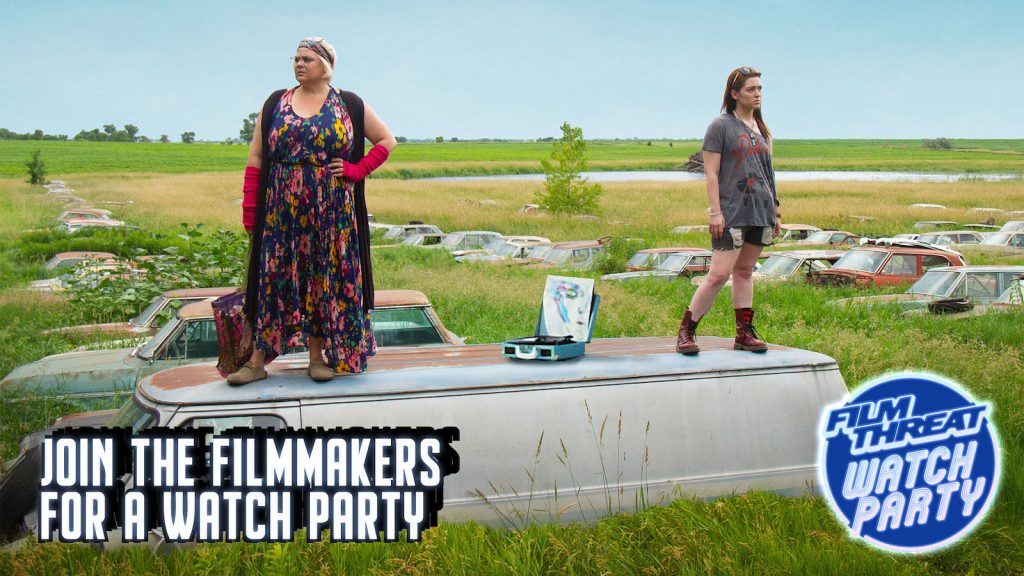
Sometimes the most effective stories are the ones that don’t spell out every single emotional, thought or background detail. A case in point is the bittersweet drama “Whisky” from the talented Uruguayan filmmakers Juan Pablo Rebella and Pablo Stoll. In the hands of this highly impressive duo, a story which could’ve been a mess of obvious situations becomes an intriguing tale of original and painfully real characters in a peculiar mix which the audience is left to connect the proverbial dots.
Jacobo (Andres Pazos) is a late-middle-aged owner of a small, somewhat dilapidated sock factory. He is so behind the times that he relies on an adding machine and a typewriter in his dreary office; sending a fax requires a trip to a print shop, since he has no fax machine. His company consists of two young women and a not-so-young manager/assistant named Marta (Mirella Pascual), who maintains an enigmatic solemn _expression throughout her day and a lonely existence beyond the factory (she apparently has no family of her own and her free time is spent going alone to the movies).
Marta is clearly the lifeblood of the factory, keeping after the employees while making sure Jacobo has his paperwork in order. It comes as no surprise to her when Jacobo rather abruptly asks her to pose as his wife during a weekend visit of his younger brother Herman, a successful sock manufacturer living in Brazil. Not only does Marta decline compensation for this masquerade, but she takes it upon herself to clean Jacobo’s rundown apartment in order for Herman to feel welcome.
Tensions between Jacobo and Herman have been raw for over a year, following the death of their mother. Jacobo had their mother living with him during her failing months, and it would appear Herman neither visited her during that time nor made any attempt to assist Jacobo in the financial upkeep of her medical care. Herman’s visit is timed for the anniversary of her passing and the unveiling of her headstone (the brothers are Jewish, but beyond this ceremony and brief glimpses of menorahs in the clutter of Jacobo’s apartment there is nothing particularly significant about their religion in this film).
Herman, who is both charmed by Marta and who is eager to make amends for his negligence, takes Jacobo and his “wife” on a weekend retreat to a seaside resort where the men vacationed as children. The resort is not crowded and not particularly inviting, due to the fact it is the wintry off-season. Yet in this unlikely setting, the brothers try to find some degree of peace while Marta, keeping up her masquerade without problems, begins to enjoy the level of attention she is receiving.
“Whisky” has no big, dramatic moment to allow for spleen-venting soliloquies. Instead, it is a symphony of small gestures, throwaway glances, brief exchanges of unexpected observation and silences which actually say more than pages of dialogue.
One of the traps that so many films stumble into is the need to spell everything out, as if the audience is incapable of piecing a puzzle together. In “Whisky,” there is a wealth of clues that the observant viewer can locate to fit together: the empty wheelchair and dust-covered oxygen tank in Jacobo’s apartment, Marta’s odd combination of respect to Jacobo’s authority (she always says “Excuse me” when entering his office) and her unapologetic willingness to offer solutions for his little problems (she volunteers to call a repairman to fix a broken window shade), Herman’s tactless and careless nature (the pricetag is left on the gift he gives Jacobo at the airport when he arrives), and the seemingly strong fraternal bonds that enable them to share interests (watching a soccer match, playing air hockey) without saying more than a few sentences between them.
While this less-is-more approach engages the viewer hungry for more leads on what is progressing, the filmmakers (who co-wrote this film with Gonzalo Delgado) are wise enough not to give away too much. A pair of key scenes at the end of the film seem to send the story in a distinct direction, but wisely the scenes are crafted in a way which leaves the viewer to figure out where the characters have gone. To give these away would be semi-criminal – trust me when I say it is worth waiting through “Whisky” to determine what happens.
While the ensemble cast is wonderful, separate and vigorous praise must be given to the extraordinary presence of Mirella Pascual, whose seemingly blank _expression undergoes subtle shifts over the film’s length to reveal the unexplored depth of her personality. Whether she is taking a few extra moments to adjust her appearance in a mirror, or happily revealing an unexpectedly weird talent for being able to repeat sentences backwards, or staring out at an empty sea while sneaking a cigarette, or watching with a mix of rue and happiness at a young honeymooning couple’s frolic in a pool, Pascual is a riveting force of quiet power. If “Whisky” had been in the hands of an aggressive distributor, Pascual would find herself buried under a half-ton of awards for her amazing performance.
Speaking of awards: “Whisky” was Uruguay’s entry to this year’s Academy Award competition for Best Foreign-Language Film. It did not get nominated, which is no surprise to the Academy’s long-standing aversion to Latin American cinema. I hate so say it, but whatever production wins the Foreign-Language Film Oscar does not deserve the prize because “Whisky” is global cinema at its best. This is a truly great film.

I have just seen this wonderful film and am so pleased to have read your sensitive review, which says all that I felt about it.
It made a very deep impression. The characters were so real that it made me wonder how much of ones own feelings are put into them, perhaps because of the extraordinary technique which invites the viewer to infer reasons for their actions. A truly great film.